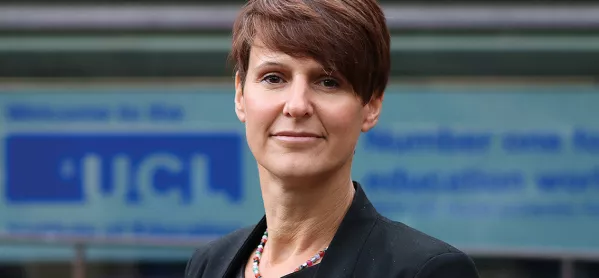If the profession is going to truly embrace a research-informed approach to teaching, then it will eventually have to face up to the reality that Professor Becky Francis has been trying to present for years: that the setting of students by ability has little positive effect on any student, but has a substantial, negative impact on those in the lowest sets.
The UCL Institute of Education director has reiterated this message consistently, and this year presented new data from an Education Endowment Foundation-funded study that laid out the problem.
Speaking on the Tes Podagogy podcast, she bluntly explained the problem: “We find a disproportionate amount of kids from low socioeconomic backgrounds in low sets and streams,” she said. “And we also know that kids in low sets and streams make poorer progress than those in higher sets and streams. So those children are subject to a double advantage that is being pushed onto them by the education system. The kids that need the best help and the best practice are being disadvantaged by grouping practices. This is why grouping is an issue for social inequality.”
Francis acknowledges the challenges that such findings create for the education system. Setting is how teachers are used to teaching; it would require training and resources to shift to a mixed-attainment teaching methodology and, currently, the research is lacking in how to do this effectively. Timetabling and lesson structure would need to change, too.
But is the difficulty of such a prospect a valid reason to keep doing something that’s been proven to be, according to the research, ineffective? Francis argues not, and she is increasingly making it difficult for schools - which are on a mission to become evidence-based in their practice - to disagree with her.
Tes’ people of the year 2018




